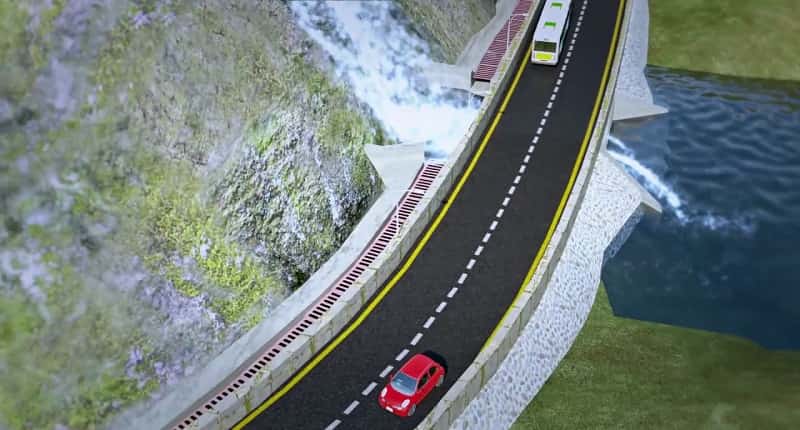The central Government has officially nodded an ‘Yes’ to the ambitious Tunnel project on the Chardham route. Not only will the tunnel reduce the travel time by an hour but will also make the area more accessible to pilgrims. Particularly, the tunnel is to decrease the travel distance between Yamunotri and Dharasu by 20 km. This will in turn take away almost an hour from the total travel time. Different sections have expressed differing opinions on the Centre’s decision. While residents and stakeholders seem to have welcomed the decision, environmentalists express grave concern over the effects the tunnel could have on the ecologically sensitive Himalayan region.

The decision was taken in the meeting of the Cabinet Committee for Economic Affairs and was headed by Prime Minister Narendra Modi. The 1,384 crore costly Tunnel will be built in between Silkyara Bend and Barkot, near Yamunotri Dham in Uttarkashi district. Meanwhile, the proposal for another tunnel near Chamba in Tehri district which is part of the Prime Minister’s All-weather Road Project is underway.
The proposed tunnel near Yamunotri is 4.5 km long. While some hope that with the construction of this tunnel, Char Dham route would remain open throughout the year as opposed to its current closing down for 4-5 months every year. Tour operators that conduct pilgrimages to all the four Dhams welcome the decision as it will ease the difficulties drivers are used to face on the old route including landslides. The reduced travel time is bound to help the old pilgrims on the sacred pilgrimage.
Environmentalists, on the other hand, proclaim the need for caution before moving with the project ahead. If we fail to exert adequate caution and not interfere with the fragile ecological zone of Himalayas, it might lead to disastrous consequences. They aren’t against the construction of tunnel as such, but for the building of tunnel such that the environmental balance of the region does not get disturbed. After all, our tradition considers nature at the zenith of all of God’s corporeal manifestations. We have enough examples of nature’s fury in action, before which all of our human-made technology and power becomes helpless, that have occurred because of prolonged negative interference with nature’s delicate balance. Thus, it becomes imperative that all the operations concerning the tunnel construction be scrutinised and monitored as per the requisite geological and environmental needs of the region.
We have enough examples of such tunnel construction from many countries. Developed nations like Switzerland and Holland have already paved the way for ecologically sensitive construction of tunnels. We could take valuable lessons from our neighbouring country China which has successfully built tunnels without deforestation
The ambitious Char Dham Project has over 900 km long road network to be built on the char dham route. Seven stretches of road are being envisioned under the same. These are Rs 2166 crore costly Rishikesh- Rudraprayag road, Rs 1542 crore costly Rudraprayag- Mana road, Rs 1,627 crore costly Rishikesh – Dharasu road, Rs 2079 crore costly Dharasu –Gangotri road. About 534 hectare of land is estimated to be needed for the proposed char Dham project.


 Call
Call WhatsApp
WhatsApp Enquiry
Enquiry




Leave a Reply